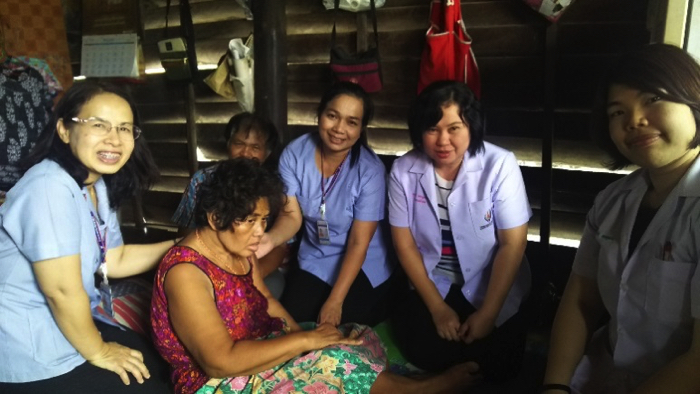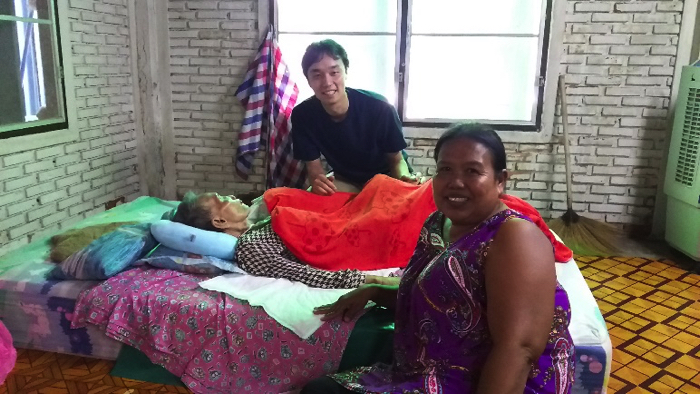- Project Leader : Watanabe Osamu (Teikyo University of Science, Physical Therapy)
- Collaborators : Jiraporn Chompikul (Mahidol University, Asean Institute for Health Development)
- : Nuanpan Pimpisan (Nakhonratchasima hospital)
- : Kawamori Masato (Osaka University, School of Human Sciences)
- : Kimura Yumi (Osaka University, Graduate School of Human Sciences)
- : Ryota Sakamoto (Kyoto University, Center for Southeast Asian Studies)
- : Kwanchit Sasiwongsaroj (Mahidol University, Research Institute for Languages and Cultures of Asia)
Outline of Research
Thailand is aging prominently as a result of both a substantially longer life expectancy and declining fertility rates. This poses a problem for Thailand as the needs of the elderly outweigh the number of caregivers. The number of elderly who are suffering from non-communicable diseases has also been increasing. In order to combat this issue, hospitals have begun to push for early discharges of patients. This causes a shift in the care structure from hospital care to more informal care. This, in turn, raises the demand on family members to become caregivers for the elderly. Therefore, the objectives of the current study are to identify factors associated with the feeling of burden among family caregivers looking after dependent elderly in Thailand and to clarify the magnitude and nature of the associated stress in order to develop strategies for alleviating their burden.
Description
Thailand, the region’s second largest economy after Indonesia, is aging prominently as a result of both a substantially longer life expectancy and declining fertility rates. The number of elderly suffering from noncommunicable diseases has also been increasing and non-communicable diseases such as diabetes, hypertension, and cardiovascular disease, are top-ranked causes of morbidity and mortality in Thailand.
As the demand on family members to become caregivers of the elderly rises, the need to fully integrate such caregivers into the planning and delivery of health care to the dependent elderly becomes necessary. The caregiver stress model is employed to conceptualize the mediating and moderating factors of caregiver burden, and to offer caregiver psychosocial interventions.
Therefore, the objectives of the current study are to identify factors associated with the feeling of burden among family caregivers looking after dependent elderly in Thailand and to clarify the magnitude and nature of stress in order to develop strategies for alleviating their burden. We will conduct qualitative research based on the findings.


